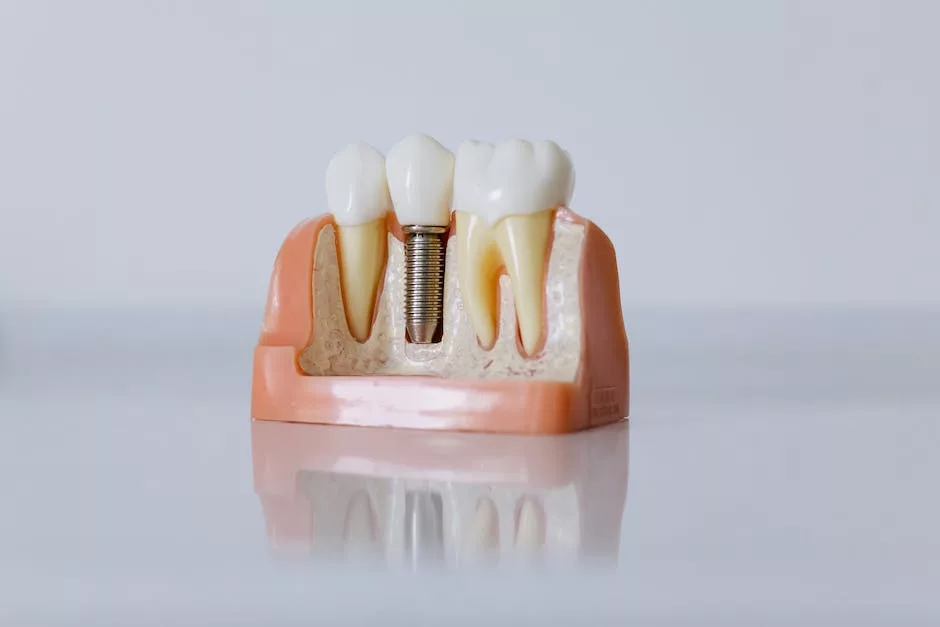Dental implants have a 97% success rate! They’re the most advanced solution for patients who want to replace missing teeth due to trauma or decay. If you’re about to receive dental implants, make sure to talk to your dentist about your implant maintenance routine. Otherwise, these common dental implant maintenance errors could impact their longevity.
Not sure how to care for your new dental implant? Read on to learn more!
1. Disturbing the Area
One of the most common mistakes people make after receiving a dental implant is disturbing the surgical site with their tongue or fingers.
During the procedure, your oral surgeon will cut into your gum line to expose the jawbone underneath. Then, they’ll need to drill deep into the bone to insert the implant post. It’s normal to experience some swelling and discomfort in the days following the procedure.
However, the tissue surrounding the implant site will need to stay intact to heal properly. Each time you touch or disturb the area, you’ll impede the recovery process.
In fact, you could risk dislodging the blood clot that’s forming around the implant site. Bleeding could occur as a result. If bleeding occurs, make sure to let your dentist know right away.
Remain wary when you rinse the area or drink beverages with a straw, too. For example, you could unintentionally nudge the area with a straw. These activities could disrupt the area and cause bleeding.
2. Not Setting a Routine
Your implant maintenance routine can impact your recovery time.
After receiving your dental implants, sit down with your dentist. Make sure you understand the steps you need to follow as part of your routine. Establishing a proper aftercare routine will minimize pain while keeping potential infections at bay.
Your dentist and oral surgeon can help you avoid making any mistakes with your routine.
For example, they’ll let you know which medications you’ll need to take, as well as when you’ll need to take them. They can also help recommend a diet that can aid your recovery. For example, you should prioritize soft foods while you heal (more on this below).
As part of your implant maintenance routine, make sure to prioritize your general oral health routine. For example, you’ll need to brush twice a day and floss daily. Brushing and flossing will minimize plaque formation due to lingering bacteria and food particles.
Neglecting to brush and floss could increase the risk of tooth decay or gum disease. Remember, your gums will need time to heal to support your new dental implant. Brushing and flossing can help extend the implant’s lifespan.
Talk to your dentist about the implant cleaning tools you should use to effectively clean your teeth and the implant site. For example, they might recommend an antibacterial mouthwash in addition to a new brush and toothpaste. Their recommendations will ensure you don’t use harsh products that can otherwise damage the implant.
3. Forgetting Your Medication
As part of your implant maintenance routine, you’ll need to take various medications in the days following the procedure. Some of the medications can help relieve any pain symptoms you might experience. Others can help prevent infections.
Make sure to follow your dentist’s exact instructions regarding your medications. Don’t stop taking your medications until the proposed time. Don’t exceed or take a lower dose unless recommended by your dentist.
Taking your medications on time will ensure you achieve the desired results.
Neglecting to take your medications, on the other hand, can delay the healing process. The risk of oral infections could increase, making your condition worse.
4. Starting With Hard Foods
Remember to talk to your dentist about the foods you should eat as part of your new routine. For example, they might recommend:
- Cold broths
- Cold, blended soups
- Apple sauce
- Fresh juices
- Protein shakes and smoothies
Avoid hard foods in the days following your procedure, which can otherwise irritate your gums. Remember, you’ll want to avoid dislodging the blood clot, too. With that in mind, avoid foods like nuts and chips, which can damage the implants and reduce their lifespan.
Instead, stick to soft foods.
5. Unhealthy Habits
The recovery timeline can take three to nine months. Everyone heals at different rates. However, unhealthy habits could impede the recovery process.
For example, you should avoid smoking, which can damage the implants and your other teeth. Cigarette smoke can damage the tissue and bone surrounding the implant site. The bone and tissue can weaken, affecting their ability to hold the implant in place.
Nicotine exposure will weaken your immune system, slowing the recovery process down further. It also restricts blood flow and oxygen to your oral tissues. Meanwhile, tobacco prevents the surrounding bone and implant from properly fusing together.
Quit smoking one or two weeks before you receive your dental implants. Then, wait at least three months after the procedure before smoking again.
Quitting can benefit the osseointegration process and ensure proper healing.
6. Grinding or Biting Hard Objects
Biting on hard objects like ice, candy, and pen caps can impede the healing process. You could even risk cracking and damaging the implant.
Avoid biting down on hard objects or using your teeth as a tool. For example, you should avoid using your teeth to open bags or bottles.
If you begin grinding your teeth when you sleep (bruxism), let your dentist know. Otherwise, you might chip or crack a tooth or the incision site.
If you unintentionally damage the implant site, contact your dentist right away to avoid complications.
7. Failing to Follow Up
One of the worst mistakes you can make regarding your dental implants is neglecting to follow up with your dentist.
Follow-up appointments will ensure the implant site is healing properly. Your dentist can also spot potential problems before they lead to complications.
Otherwise, visit your dentist every six months to keep plaque and bacteria at bay.
Avoid These Dental Implant Maintenance Errors for a Stunning Smile
These dental implant maintenance mistakes could impact your ability to heal. Increase the longevity of your implants by avoiding these mistakes. Make sure to contact your dentist if you experience any problems.
Otherwise, get ready to enjoy your beautiful new smile!
Want to schedule your next appointment? We hope to see you soon!
Contact us today to get started.

